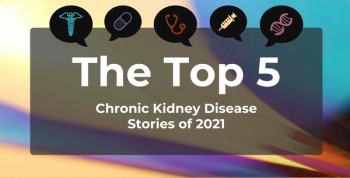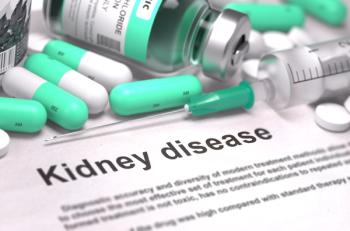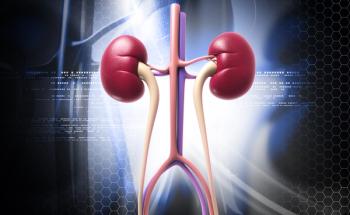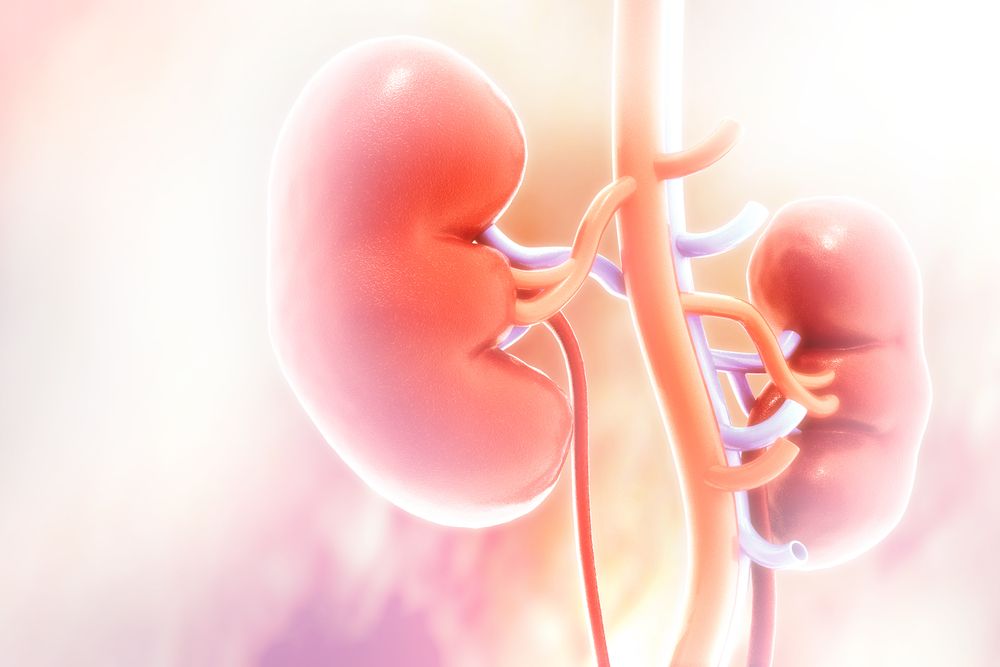
Chronic Kidney Disease
Latest News

Latest Videos

CME Content
More News

More nutritional care may be needed for elderly patients with chronic kidney disease (CKD) who are ingesting higher-than-recommended amounts of protein, investigators concluded.

A study comparing 4 different artificial intelligence (AI) models found that some models were better than others at detecting early-stage chronic kidney disease (CKD), when patients do not experience visible symptoms.

Investigators offered insight into disparities between countries regarding chronic kidney disease burden and suggestions on how those disparities can be addressed.

Risk of recurrent venous thromboembolism (VTE) in patients with chronic kidney disease (CKD) and VTE was significantly reduced in those who were treated with apixaban vs warfarin, investigators concluded.

Insulin resistance may become a future target of treatment in the chronic kidney disease (CKD) population because of the several mechanisms in patients that contribute to increasing resistance, authors of a review concluded.

A focus group consisting of patients with chronic kidney disease (CKD) as well as CKD providers and researchers shared what they deem necessary and helpful to include in future mobile CKD management applications.

The top 5 most-read chronic kidney disease stories of 2021 on AJMC.com significantly focused on aiding physicians with determining patient risk of developing the disease or experiencing renal complications.

Pulse pressure was found to have a significant association with chronic kidney disease (CKD), indicating that changes in pulse pressure could serve as a predictive marker for disease progression.

Patients with chronic kidney disease (CKD) undergoing hemodialysis experienced a greater degree of psychological distress during the COVID-19 pandemic compared with patients treated with peritoneal dialysis, investigators found.

Patients who have experienced acute kidney injury (AKI) reported experiencing significant impacts on aspects of their physical and emotional health, demonstrating the different ways that AKI episodes influence patients’ health-related quality of life.

Rising ambient temperatures were found to be associated with higher risks of all-cause mortality and all-cause hospitalization in patients with end-stage renal disease (ESRD), highlighting the some of the health-related consequences of climate change.







Opinions on the effectiveness and usefulness of telehealth services varied among clinicians and older patients with chronic kidney disease (CKD), suggesting that new measures and training programs should be put in place to mitigate disparities and accessibility issues.

Patients with chronic kidney disease (CKD) and elevated levels of parathyroid hormone who are treated with active vitamin D therapy experienced significantly higher risks of hypercalcemia, investigators concluded in a meta-analysis.

A tool utilizing 5 predictors was found to be reliable at identifying patients at a high risk of cardiovascular disease who were also at risk of developing chronic kidney disease (CKD), potentially allowing providers to implement prevention strategies sooner than ever before.

Improving clinical care is only one element of the 360-degree, holistic treatment that is necessary to achieve patient equity, not equality, in patients with chronic kidney disease. Biology, lifestyle, and socioeconomic status are 3 areas in which inequities often have a particularly negative impact on a carefully constructed care plan.

Robert A. Gabbay, MD, PhD, chief scientific and medical officer at the American Diabetes Association (ADA), describes the ADA's efforts to elevate the conversation about the impact of diabetes on kidney disease.

Investigators found that increased heart rate correlated with a decline in the ability for the kidneys to function at 48 weeks after a patient receives a kidney transplant, according to results presented at the 2021 American Heart Association Scientific Sessions.

On this episode of Managed Care Cast, we speak with Abi Sundaramoorthy, MD, MBA, executive vice president of clinical enterprise at Somatus, on fragmented care in chronic kidney disease, its disproportionate impact on minority communities, and the potential of value-based arrangements to address disparities and promote preventive, effective care.

Hospitalization for an acute kidney injury (AKI) event was identified as a risk factor for several adverse events after hospital discharge, including hospital readmission and mortality, according to findings presented at Kidney Week 2021.










